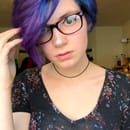*Trigger warning: discussions of suicide*
On December 28th, a girl I had once called family sent me a text for the first time in a year. We’d had high school drama, the most devastating break-up of a friendship that I’d ever experienced, and she wanted to talk. Not just the small talk that we’d been exchanging for the last year and a half, but real talk. Like we used to.
At first, I was scared. Scared of what she had to say, of a fight, of having to face that pain again, but then we talked. For hours we couldn’t stop, and I was laughing and the world seemed to shift. Back into a place that had been empty, a place only she can hold.
The next day my stepdad, a volunteer fireman for the last three years, heard her address—one he’d driven to everyday until we finally turned 16—over the walkie talkie. A dreaded code––one that meant someone made a fatal decision about their own life. He heard her description, but he already knew. We pretended for the next two days that it might not be her, that maybe he remembered wrong, maybe she just wasn’t answering my messages.
And then the call came in.
Between Walker Field House and Drew Fine Arts, on those quiet little sidewalks so far from home. A voice I hadn’t heard in years, a friend caught in our crossfire, and the words she said brought me to my knees early one January day. “They’re doing a brain scan, but it doesn’t look good. You should probably come say your goodbyes.” I didn’t get back up, I thought for years, and I let the cold stone soak the knees of my jeans, sitting there surrounded by the greyest world I’d ever seen.
The hospital doors were impossible to walk through, as if every energy in the universe wanted to push me forward and pull me back at once. Her mother greeted me, destroyed and wearing the shirt she had delivered her baby in 19 years before. We hadn’t talked in about a year, but that time got erased when we were in that room. I learned that before it all, my friend had been ecstatic to hear from me, to talk to me. That she wouldn’t stop telling her mother about it all night long, about how fun it was, about how good it felt.
I wonder now.
I wonder a lot, and I wonder about her those last three days, sitting in her room for hours. Her mother would go in and out when I was there, having things to organize and doctors to talk to, but she didn’t want to leave our girl alone.
So I sat there, telling her stories about college, reiterating our memories like the gospel they’d become to me, and I prayed for the first time in six years; even though I knew the test results, that even as her heart fought ferociously, her mind had died that first day. And I thought to myself, well isn’t that fitting; she was always one to lead with her heart anyways.
I never said goodbye, and I don’t regret that; it simply wasn’t us to say goodbye. We were never truly apart.
The next 11 months would never be as long, as hard, or as devastating as those hours listening to her pulse through a machine; but they remain a battle I am fighting.
Healing hasn’t come easily for me, the first moment of healing came a month and 7 days later when my heart and mind caught up with each other and I finally realised she wasn’t anywhere on this earth. Then it came again 2 months and 18 days later, when I heard someone say her name and I didn’t flinch. And then I lost it as my schoolwork overflowed, my jobs became robotic and my friendships failed. I lost it when the pain made it too hard to eat, and old habits returned like demons from my nightmares. I lost it in my first love, who held me through those few months like a soldier, soon became tired of the weight I put on them.
I have found and lost healing every day, and 11 months later I cried for her for two hours. Even as my life changes and fluctuates, and it grows and goes without her in it; she is endlessly a part of every moment. I’m not okay, and I will never be the same; but healing is rehabilitation, and there will always be set backs, and I don’t know everything about it; the most that I know is that lessons have come from it, and the biggest I’ve learned is that there is no schedule for someone’s recovery, and there should be no expectations. I hope that can be carried on from me, now, to those I interact with.



